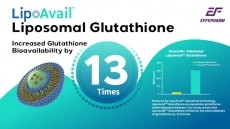Study linking vitamin D to autism retracted over reliability issues

Journal chiefs retracted the study, “Randomized controlled trial of vitamin D supplementation in children with autism spectrum disorder,” citing “significant discrepancies,” and “previously unidentified/reported problems with missing data and recording irregularities”.
“As a result of these issues the Editors no longer have confidence in the findings reported in the original paper,” said the journal’s editor‐in‐chief, Edmund Sonuga‐Barke, and John Wiley & Sons.
“Based on all these matters combined and following published guidance from the Committee on Publishing Ethics (COPE) and Wiley's Best Practice Guidelines on Publishing Ethics, we have decided that the only course of action available to us is to retract the paper.”
The study, which appeared in the Journal of Child Psychology and Psychiatry, and Nutraingredients in 2016, looked into the effects of vitamin D3 supplementation on children with Autism Spectrum Disorder (ASD).
Findings gathered from the multinational research team, hailing from Egypt, Saudi Arabia, China, Chile, the UK and Norway, pointed to an improvement in the condition’s signs and symptoms.
Flagging up concerns
According to Retractionwatch, journal readers that questioned the findings raised concerns in a series of correspondence that prompted the journal’s editors to ask the study authors for the trial’s raw data.
However, in the statement of retraction, the editors stated the authors were unable to provide this data due to the electronic data base suffering a computer outage and “that they could send only 95 out of 120 hard‐copy participant data sheets as one site had closed and was no longer contactable.”
“The substantial data loss in and of itself posed a serious difficulty in verifying the correctness of the data presented in the paper,” Sonuga‐Barke added.
Dr Khaled Saad, corresponding study author and associate professor at Assiut University in Egypt responded to the journal's actions saying, "We are all disappointed with the unfair paper retraction."
"Our paper was submitted on the 16 April 2016, revised twice and accepted on 5 Sep 2016 after more than four months of revision. It was then published online on 21 November 2016.
"After two months in January 2017 we responded to some issues by the editors and reader Dr David Jeffrey Beale. We re-evaluated all statistics according to the reviewer and editor comments and we prepared a single document for both editorial questions and letter to editor and published.
"In April 17 2018, the editors asked for raw data. Unfortunately the soft data were compromised by ransomware known as "Jaff virus" in 2017.
"So we responded by contacting the parents and patient centres requesting the hard copy of their data. We made a scan of these files and sent them to the editor.
"However, we could not perform any analysis of these files as it takes months. We collected the hard copies of the primary outcome data as recorded directly on the questionnaires (which included: Aberrant Behaviour Checklist (ABC), Autism Treatment Evaluation Checklist (ATEC), Social Responsiveness Scale (SRS) and CARS) from five out of six centres as one centre had been closed for over a year before the editor's data request.
"The editor refused direct contact of patients from the 6th centre. Finally, we sent a copy of archived files of 99 patients out of 120 patients in our study. The editors evaluated the data of 95 patients and compared with 120 patients in the paper and claimed there were many discrepancies between the means of the raw data of 95 patients and the means reported in the paper of 120 patients that are unlikely to have arisen due to sampling fluctuation.
"Twenty percent of results were lost and they claimed discrepancies. We think that was unfair to retract our trial after 2 years of publications."
One of the study authors, Geir Bjørklund has previously featured on Retractionwatch back in 2015, after a paper he co-authored was retracted due to the research team failing to disclose conflicts of interest.
First author Janet Kern responded to the allegations stating, “We disclosed our conflicts of interest, but [journal co-editor-in-chief Stephanie Bird] believed more should have been disclosed.”
She said that the authors did not agree with the study’s retraction and challenged the claim that the paper included mistakes adding, “There were no material errors in the paper that affected the conclusion”.
Vit D paper ‘highly cited’
Despite the retraction, Bjørklund’s vitamin D paper has been cited 27 times, according to Clarivate Analytics’ Web of Science, receiving a “highly cited paper” recognition compared to similar studies of the same age.
The link has been the subject of much interest in recent years as studies have suggested that dietary intervention with vitamin D as well as tryptophan and omega 3 fatty acids could boost brain serotonin concentrations.
This may help prevent and possibly ameliorate some of the symptoms associated with ASD without side effects.
Other studies have looked into the administration of vitamin D as a nutrient capable of blocking maternal immune activation (MIA)-induced ASD-related behaviors.















